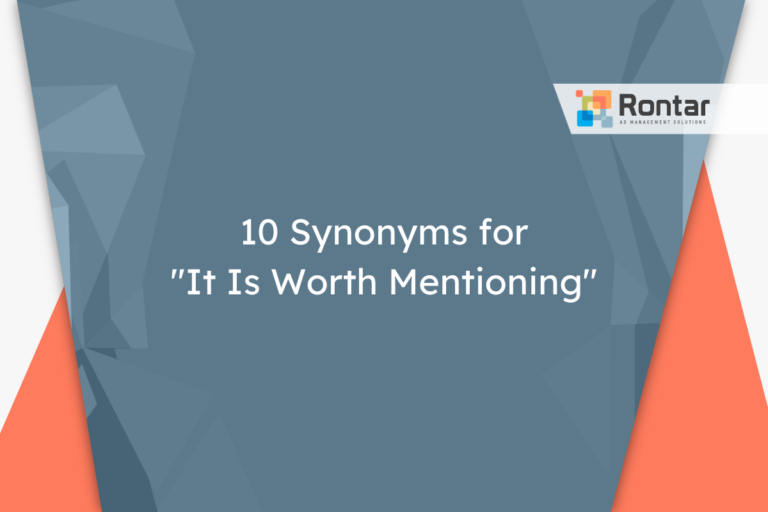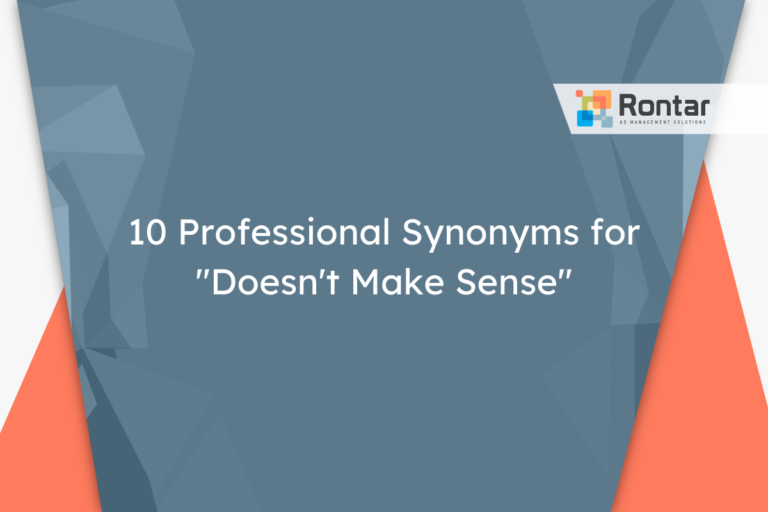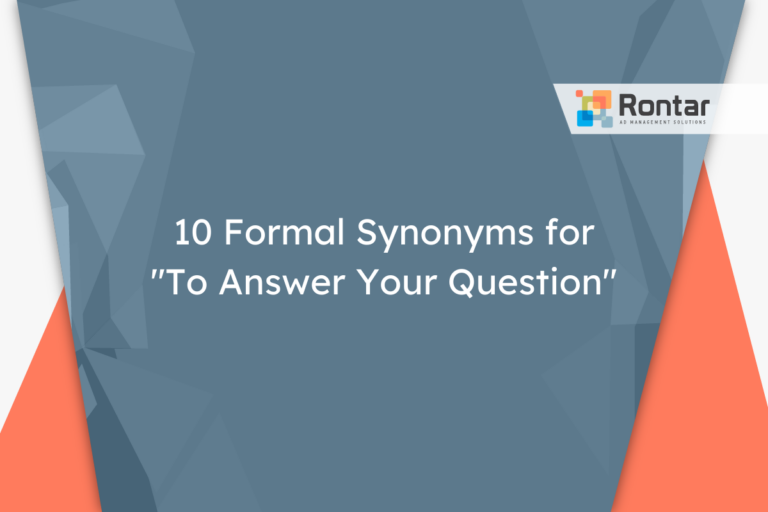10 Other Ways to Say “Thank You for Your Interest”

Finding the right words to show gratitude is key in professional settings. The phrase “Thank you for your interest” is commonly used but might sometimes feel too routine.
This article provides ten alternative ways to express the same appreciation, keeping your emails fresh and engaging. Each alternative is explained, including when and how to use it best, along with short email examples.
Is It Professional to Say “Thank You for Your Interest”?
The phrase “thank you for your interest” is considered professional, formal, and polite. This expression is versatile, fitting seamlessly into various professional contexts—from responding to job applications to acknowledging inquiries about services or products. It serves as a respectful way to express appreciation for someone’s engagement or queries.
This phrase is suitable for use with all types of recipients or correspondents, including potential clients, job candidates, business partners, and colleagues. It’s appropriate for emails, letters, and even professional networking platforms like LinkedIn.
Here is a short example:
Dear Alex,
Thank you for your interest in the Graphic Designer position at our company. We have received your application and are in the process of reviewing it. We will be in touch soon with the next steps.
Best regards,
Emily Carter
Human Resources Manager
Looking into the pros and cons of using this phrase:
Pros:
- Conveys appreciation and professionalism.
- Helps maintain a positive tone in the communication.
- Is broad enough to be appropriate in a wide range of contexts.
Cons:
- Can feel impersonal if overused or not followed up with more specific details.
- May be seen as a generic response in situations where a more personalized touch is expected.
While “thank you for your interest” is a staple phrase in professional communication, there are situations where someone might want to use an alternative. This could be due to a desire to stand out with a more unique expression or to convey warmth and personalization in a way that a more commonly used phrase might not.
10 Other Ways to Say “Thank You for Your Interest”
Finding alternative ways to express gratitude can add variety to your professional communication. Here are ten of the most common alternatives to “Thank You for Your Interest” for use in professional emails:
- We appreciate your interest
- Thanks for inquiring
- Your inquiry is greatly appreciated
- We’re grateful for your interest
- Thank you for reaching out
- Your attention to this matter is much appreciated
- Thank you for your query
- We value your interest
- Grateful for the consideration
- Thanks for getting in touch
1. We appreciate your interest
This alternative is close to the original in its professional tone but offers a slightly warmer note. By stating “We appreciate,” it implies a collective gratitude from your company or team, making it feel more inclusive.
In contexts where you wish to emphasize the team or company’s collective appreciation—for example, in response to job applications, service inquiries, or project proposals—this phrase is particularly suitable. It works well in emails and formal letters addressed to potential clients, job applicants, or business partners.
Email example:
Dear Michael,
We appreciate your interest in our consulting services. We are reviewing your request and will respond with further details shortly.
Warm regards,
Laura Simpson
Client Services Manager
2. Thanks for inquiring
This alternative is slightly less formal than the original but maintains a polite and professional tone. “Thanks for inquiring” has a friendly edge, making it ideal for encouraging ongoing communication.
It’s better suited for situations that call for a slightly more casual yet professional approach, like responding to customer service inquiries or informal business queries. This phrase is most effective in emails and direct messages where a balance between approachability and professionalism is needed.
Email example:
Dear Jamie,
Thanks for inquiring about our product line. I'm here to provide all the information you need.
Best,
Sam Parker
Sales Representative
3. Your inquiry is greatly appreciated
This synonym elevates the level of gratitude expressed and retains a very formal and professional air. It underscores the value placed on the recipient’s interest or question.
This alternative is best used in contexts requiring a high degree of formality and professionalism, such as in official responses to regulatory bodies, academic research inquiries, or formal business proposals. It fits well within emails and official letters where you aim to make the recipient feel highly valued.
Email sample:
Dear Professor Smith,
Your inquiry is greatly appreciated. We are eager to discuss potential research collaborations in further detail.
Sincerely,
Dr. Emily Grant
Head of Research Department
4. We’re grateful for your interest
Adding “we’re grateful” introduces a note of sincerity and warmth, emphasizing gratitude on behalf of the speaker or organization. This phrase is equally professional and is perceived as genuine and thoughtful.
It’s particularly effective in messages where personal appreciation wants to be conveyed, such as in response to unsolicited business proposals, partnership inquiries, or charitable donations. Ideal for use in emails and letters where a personal touch is advantageous.
Email sample:
Dear Thomas,
We're grateful for your interest in volunteering with our organization. We look forward to discussing opportunities with you.
Kind regards,
Anna Lopez
Volunteer Coordinator
5. Thank you for reaching out
This alternative feels more conversational and is a great way to begin a dialogue. While still professional, it suggests a readiness to engage further, making it apt for starting a potential collaboration or discussion.
Best suited for emails and messages where you want to encourage further communication, such as initial consultations, business development inquiries, or networking emails. It’s most effective with new contacts or potential clients where forging a connection is key.
Email example:
Dear Casey,
Thank you for reaching out with your questions about our services. I'd be happy to schedule a call to discuss this in more detail.
Best wishes,
Jordan Miles
Business Development Manager
6. Your attention to this matter is much appreciated
This phrase conveys a deep sense of gratitude and is quite formal. It acknowledges not just the interest but the attention the recipient has given to the matter at hand, suggesting a level of seriousness and consideration.
It is particularly effective in situations requiring acknowledgment of the recipient’s effort or understanding, such as when responding to complaints, concerns, or detailed proposals. This phrase is most fitting for emails and formal letters addressed to stakeholders, clients, or customers who have raised important issues.
Email sample:
Dear Mrs. Rodriguez,
Your attention to this matter is much appreciated. We assure you that we are handling your concerns with the highest priority.
Regards,
Keith Manning
Customer Service Manager
7. Thank you for your query
By specifically acknowledging the “query,” this option directly addresses the recipient’s act of asking a question, making it both polite and professional. It is straightforward and encourages direct engagement.
This phrase is better suited for responses to specific questions about products, services, or policies. It is ideal for customer service emails, FAQs responses, or any situation where addressing individual questions clearly and professionally is important.
Email example:
Dear Loren,
Thank you for your query regarding our return policy. I'm here to clarify any questions you might have.
Best,
Diana Wells
Customer Support Specialist
8. We value your interest
This alternative emphasizes the value of the recipient’s interest, lending a professional yet appreciative tone to the message. It suggests that the recipient’s engagement is significant to the sender or organization.
Use this phrase when you want to highlight the importance of the recipient’s interest or engagement, such as in responses to membership inquiries, seminar or webinar registrations, or subscription sign-ups. It’s best for emails and newsletters where expressing value towards the recipient’s action is crucial.
Email sample:
Dear Ellis,
We value your interest in our membership program. Let me know if you have any questions as you complete your registration.
Sincerely,
Rachel Kim
Membership Coordinator
9. Grateful for the consideration
This phrase stands out for its warmth and sincerity, making the message feel personal while still maintaining a professional tone. It specifically thanks the recipient for considering the sender’s offer or proposal.
This alternative is well-suited for follow-up emails after sending a proposal, application, or offer. It works well with potential employers, clients, or investors in professional emails where you want to underscore appreciation for their consideration.
Email example:
Dear Mr. Thompson,
Grateful for the consideration you've shown towards our proposal. I look forward to any feedback you might have.
Warm regards,
Gina Hall
Project Manager
10. Thanks for getting in touch
This synonym is friendly and inviting, perfect for beginning conversations. While it maintains a professional demeanor, it has a slightly more informal touch than the original phrase, making it feel accessible.
It’s most applicable in situations where establishing a rapport is crucial, such as in networking messages, initial business inquiries, or when responding to informal job applications. This phrase is best for emails and messaging platforms where a less formal but still professional approach is preferred.
Email sample:
Dear Veronica,
Thanks for getting in touch about the workshop. I'm excited to explore how we can collaborate.
Kindly,
Evan Morris
Event Coordinator
Final Thoughts
Choosing the best way to say “Thank you for your interest” can make your emails stand out. The ten alternatives we’ve shared offer a range of tones, from formal to more personal, giving you options for every type of professional interaction. Using these phrases can help make your communication more engaging and show genuine appreciation.






